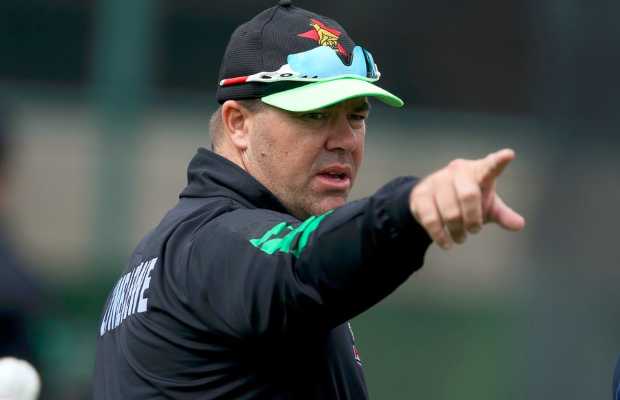Former Zimbabwe captain Heath Streak banned from all cricket for eight years

Former Zimbabwe captain Heath Streak banned from all cricket for eight years!
The former Zimbabwe captain Heath Streak and coach has been suspended from all forms of cricket until March 2029, after he accepted a variety of charges of breaching cricket’s anti-corruption code.
One of Zimbabwe’s finest fast bowlers, Streak was under investigation for a host of games between 2017 and 2018 when he served as a coach.
“Heath Streak is an experienced former international cricketer and national team coach, who had participated in numerous anti-corruption education sessions and was fully aware of his responsibilities under the Code,” Alex Marshall, ICC general manager of integrity unit, said in an ICC statement.
“As a former captain and coach, he held a position of trust and owed a duty to uphold the integrity of the game. He breached the Code on several occasions, including facilitating the approach of four other players. At times, he also sought to obstruct and delay our investigation.”
The charges included “disclosing inside information” related to a variety of series in 2017 and 2018, “in circumstances where he knew or should have known that such information may be used for betting purposes”.
In addition, he failed to disclose to the ICC’s anti-corruption unite any approaches to engage in corrupt conduct in relation to international matches, matches in the 2017 Bangladesh Premier League, the 2018 Pakistan Super League, the 2018 IPL, and the 2018 Afghanistan Premier League.
Heath Streak banned for eight years under ICC Anti-Corruption Code https://t.co/887PDYUD9j via @ICC
— ICC Media (@ICCMediaComms) April 14, 2021
Alex Marshall, ICC general manager further stated, “The offences did not affect the outcomes of any relevant matches and Mr. Streak has agreed to assist the ICC anti-corruption education programme for which we are grateful.
“He has also expressed his remorse and contrition and entered this agreed sanction decision to avoid the need for a full disciplinary process. The sanction reflects this cooperation.”
He also failed to disclose receiving the bitcoin and iPhone or the “receipt of any gift, payment, hospitality or other benefits” that he “knew or should have known was given to them to procure a breach of the code”.
In addition, he failed to disclose to the ICC’s anti-corruption unite any approaches to engage in corrupt conduct in relation to international matches, matches in the 2017 Bangladesh Premier League, the 2018 Pakistan Super League, the 2018 IPL, and the 2018 Afghanistan Premier League.
The five charges are as follows:
2.3.2 – disclosing inside information under both the ICC Code and various domestic Codes, in circumstances where he knew or should have known that such information may be used for betting purposes. In particular, he disclosed inside information in relation to matches in the 2018 Tri-Series involving Zimbabwe, Bangladesh and Sri Lanka, the Zimbabwe v Afghanistan series in 2018, the IPL 2018, and the APL 2018.2.3.3 – directly or indirectly soliciting, inducing, enticing, persuading, encouraging or intentionally facilitating any participant to breach the Code. In particular, he facilitated or attempted to facilitate the introduction of four different players, including a national captain, to someone he knew, or should have known, may have wanted to approach them to provide inside information for betting purposes.
2.4.2 – Failing to disclose the receipt of any gift, payment, hospitality or other benefit that the participant knew or should have known was given to them to procure a breach of the Code or that was made or given in circumstances that could bring the participant or the sport of cricket into disrepute.
2.4.4 – Failing to disclose to the ACU full details of any approaches or invitations received to engage in corrupt conduct under the Code including in relation to international matches, matches in the 2017 BPL, the 2018 Pakistan Super League, the 2018 IPL, and the 2018 APL.
Article 2.4.7 – obstructing or delaying an investigation, including concealing, tampering with or destroying any documentation or other information that may be relevant to that investigation and/or that may be evidence of or may lead to the discovery of evidence of corrupt conduct under the ICC Anti-Corruption Code.






